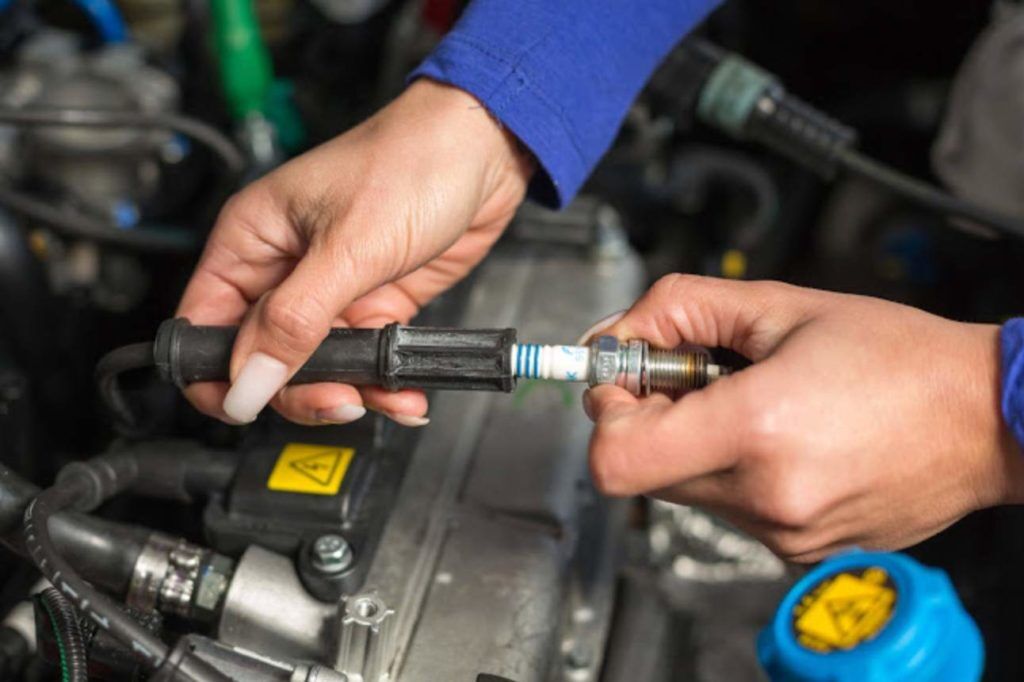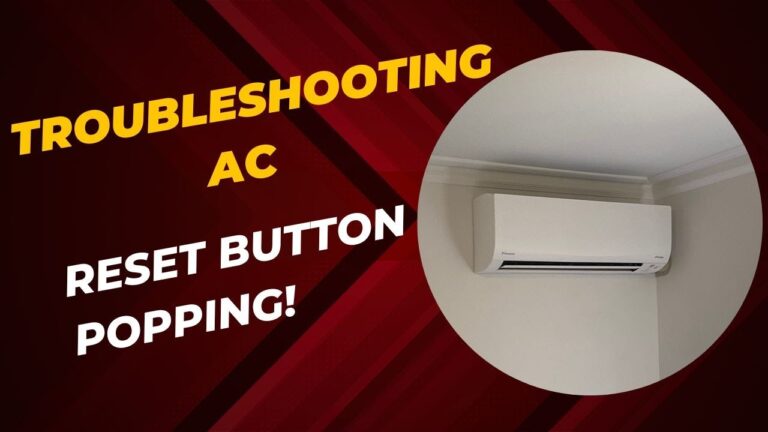Why Does My Car Jerk When The Air Conditioner Is On: Troubleshooting Tips
Your car might jerk when the air conditioner is on due to increased engine load or a malfunctioning AC compressor. This issue often relates to the engine’s ability to handle additional power demands.
Driving with the air conditioner on can sometimes cause your car to jerk or stutter. The AC system requires significant power, which can strain the engine, particularly in older or less powerful vehicles. A malfunctioning AC compressor or issues with the car’s idle control system can also contribute to this problem.
Regular maintenance and timely checks can help identify and fix these issues. Addressing the root cause promptly ensures a smoother driving experience and prevents potential long-term damage to your vehicle.
Common Causes
Experiencing your car jerking when the air conditioner (AC) is on can be worrisome. This issue often arises due to multiple factors. Understanding the common causes can help diagnose and fix the problem.
Engine Load
The engine load increases when the AC is running. This added stress can cause jerking. Here are some reasons why:
- Insufficient Power: The engine might lack the power to handle the extra load.
- Dirty Air Filters: Dirty filters restrict airflow, causing the engine to work harder.
- Spark Plug Issues: Worn-out spark plugs can misfire under added load.
Ac Compressor Issues
The AC compressor is crucial for cooling. Faults in the compressor can cause the car to jerk.
| Cause | Description |
|---|---|
| Seized Compressor | The compressor can seize, stopping it from turning smoothly. |
| Low Refrigerant | Low refrigerant levels can make the compressor work harder. |
| Faulty Clutch | A faulty clutch can disrupt the compressor’s operation. |

Credit: m.youtube.com
Effects On Performance
When you switch on the air conditioner in your car, it can have significant effects on the vehicle’s overall performance. The air conditioner draws power from the engine, which can lead to various issues. This section will cover some of the most common performance-related problems you might face.
Reduced Power
One of the most noticeable effects is reduced power. The air conditioner uses energy from the engine. This extra load can cause the car to lose power. You might feel this as a drop in acceleration. The car can also feel sluggish, especially during rapid acceleration or climbing hills.
To help understand this better, let’s look at some key points:
- The A/C compressor takes power from the engine.
- This reduces the available horsepower.
- The engine works harder to maintain speed.
In simple terms, the engine has to share its power. This can make the car feel less responsive.
Stalling
Another serious issue is stalling. When the engine can’t handle the extra load, it can stall. This means the engine stops running suddenly. This can be dangerous, especially in traffic.
Here are some common causes of stalling when the air conditioner is on:
- Faulty idle control valve.
- Weak battery.
- Dirty throttle body.
A stalling engine can leave you stranded. It’s crucial to address this issue quickly. Regular maintenance can help prevent these problems. Always check your car’s components and keep them in good condition.
To sum up, the air conditioner can affect your car’s performance in many ways. From reduced power to stalling, these issues can be both annoying and dangerous. Stay aware and keep your vehicle well-maintained.
Diagnosing The Issue
When your car jerks with the air conditioner on, it can be frustrating. Identifying the problem early can prevent costly repairs. In this section, we’ll help you diagnose the issue.
Check Engine Light
The check engine light is your car’s way of telling you something’s wrong. If this light is on, your car’s computer has detected a problem.
- Use an OBD-II scanner to read the error codes.
- Look up the error codes online or in your car’s manual.
- Common codes for jerking issues include P0300, P0301, and P0302.
These codes often point to engine misfires. This could be due to bad spark plugs, ignition coils, or fuel injectors.
Listen For Noises
Strange noises can give you clues about your car’s health. Turn on the air conditioner and listen carefully.
- Hissing: This could indicate a refrigerant leak.
- Rattling: This might mean a loose component or debris in the system.
- Whining: This noise often points to a failing compressor.
Make a note of any unusual sounds. This information can help your mechanic find the problem faster.
By following these steps, you can diagnose why your car jerks when the air conditioner is on. This will help you take the right steps to fix the issue.
Inspecting The Ac System
When your car jerks with the AC on, inspect the AC system. This helps identify any issues causing the problem. Let’s look at key areas like refrigerant levels and compressor function.
Refrigerant Levels
The refrigerant is essential for cooling your car. If levels are low, the AC can’t work well. This can make the engine struggle and cause jerking.
Check refrigerant levels using a gauge. If low, add more refrigerant or visit a mechanic. Always use the correct type of refrigerant for your car.
| Refrigerant Type | Usage |
|---|---|
| R-134a | Common in cars made after 1995 |
| R-12 | Used in older cars |
Compressor Function
The compressor pumps refrigerant through the AC system. A faulty compressor can make the engine work harder. This can lead to jerking.
Listen for strange noises when the AC is on. Grinding or clicking sounds may mean compressor issues. Check the compressor belt for wear or damage.
- Turn on the AC.
- Listen for unusual noises.
- Inspect the compressor belt.
- Consult a mechanic if needed.
Regular maintenance can prevent these issues. Keep your AC system in top shape for a smooth ride.
Engine Health
Maintaining your car’s engine health is crucial for smooth driving. If your car jerks when the air conditioner is on, it could indicate underlying engine issues. Let’s explore some common causes related to engine health.
Spark Plugs
Worn-out or dirty spark plugs can cause engine misfires. This can lead to jerking, especially when extra load, like the air conditioner, is on. Spark plugs ignite the fuel-air mixture in the engine. If they are faulty, the engine struggles to perform efficiently.
Regularly check and replace your spark plugs. It ensures optimal engine performance. Clean spark plugs improve fuel efficiency and reduce jerking.
Fuel System
A healthy fuel system is vital for engine performance. A clogged fuel filter or dirty injectors can restrict fuel flow. This can cause jerking when the air conditioner is on.
Consider these components:
- Fuel Injectors: Clean injectors ensure proper fuel delivery.
- Fuel Filter: A clean filter prevents contaminants from entering the engine.
Regularly servicing the fuel system can prevent jerking. It also ensures smooth operation, even with the air conditioner running.
| Component | Importance |
|---|---|
| Spark Plugs | Ignite the fuel-air mixture |
| Fuel Injectors | Deliver fuel to the engine |
| Fuel Filter | Keeps contaminants out |
Credit: www.quora.com
Transmission Concerns
Experiencing jerks when the air conditioner (A/C) is on can be frustrating. One potential cause is transmission concerns. The transmission plays a crucial role in your car’s performance. Let’s explore some factors that could be causing this issue.
Fluid Levels
Low or dirty transmission fluid can lead to jerking. Transmission fluid lubricates and cools the transmission. When fluid levels are low, the transmission might struggle. This struggle can become worse when the A/C is on.
Check the transmission fluid level using the dipstick. Make sure the engine is warm and the car is on a level surface. If the fluid is low or dirty, consider changing it. This simple step can solve many transmission problems.
Gear Shifts
A car that jerks during gear shifts could have a transmission issue. The transmission should change gears smoothly. If it doesn’t, the car may jerk. This problem can be more noticeable with the A/C running.
Issues with gear shifts can stem from various problems:
- Worn-out gears
- Faulty sensors
- Clogged transmission filter
Regular maintenance can prevent many of these issues. Ensure your car’s transmission filter is clean. Replace worn-out gears and faulty sensors promptly.
| Transmission Issue | Possible Cause |
|---|---|
| Jerking When Shifting | Worn-out gears |
| Jerking with A/C On | Low or dirty fluid |
Addressing these transmission concerns can improve your car’s performance. Regular checks and maintenance are key to a smooth ride.
Electrical System
The electrical system in your car plays a crucial role in its overall performance. When you turn on the air conditioner, it draws additional power from the electrical system. If the system is not functioning properly, it can cause your car to jerk. Let’s explore the components of the electrical system that could be causing this issue.
Battery Condition
The condition of your battery is vital for the smooth operation of your car. A weak or dying battery may struggle to provide sufficient power when the air conditioner is on. This can lead to your car jerking.
- Ensure the battery terminals are clean and free of corrosion.
- Check the voltage of the battery using a voltmeter.
- Consider replacing the battery if it’s more than three years old.
Alternator Output
The alternator is responsible for charging the battery and powering electrical systems when the engine is running. If the alternator is not producing enough output, the car may jerk when additional load, like the air conditioner, is applied.
| Symptom | Possible Issue |
|---|---|
| Dim headlights | Low alternator output |
| Battery warning light | Faulty alternator |
| Slow electrical accessories | Worn alternator |
- Check the alternator belt for wear and tear.
- Use a multimeter to measure the alternator output.
- Replace the alternator if it fails to meet the required output.
By ensuring your car’s electrical system is in good condition, you can avoid jerking issues when the air conditioner is on.

Credit: leosautobody.com
Preventative Maintenance
Preventative maintenance is crucial for keeping your car running smoothly. When your car jerks with the air conditioner on, it indicates an issue. Addressing problems early can save you from costly repairs later. Below are key aspects of preventative maintenance to consider.
Regular Inspections
Regular inspections help identify issues before they become serious. Check the air conditioning system at least once a year. Look at belts, hoses, and connections. A trusted mechanic can do this for you. They will also check the engine and transmission for signs of wear.
Timely Repairs
Timely repairs are essential to prevent jerking problems. Replace worn-out parts as soon as possible. Ignoring small issues can lead to bigger problems. For instance, a faulty compressor can strain the engine. This makes the car jerk when the air conditioner is on.
| Maintenance Task | Frequency |
|---|---|
| Air Conditioner Check | Once a year |
| Engine Check | Every 6 months |
| Transmission Check | Every 6 months |
- Inspect belts and hoses regularly.
- Replace worn-out parts promptly.
- Consult a trusted mechanic for thorough checks.
- Schedule regular inspections.
- Address issues immediately.
- Follow the maintenance schedule.
Frequently Asked Questions
Why Is The Car Jumping When The Ac Is On?
The car may jump when the AC is on due to increased engine load. Check for issues like a dirty throttle body, faulty AC compressor, or weak motor mounts. Regular maintenance can help prevent this problem.
Why Does My Car Shake With The Ac On?
Your car may shake with the AC on due to a worn-out compressor, low refrigerant, or engine strain.
Why Does My Car Stutter When I Turn On Ac?
Your car may stutter when the AC is on due to increased engine load or a faulty compressor. Check for issues with spark plugs or the air filter. Consult a mechanic for a precise diagnosis.
Conclusion
A jerking car when the air conditioner is on can be frustrating. Regular maintenance and inspections are crucial. Addressing potential issues early can save money and ensure smooth driving. Consult a trusted mechanic to diagnose and fix any problems. Keep your car in top condition for a comfortable ride.






